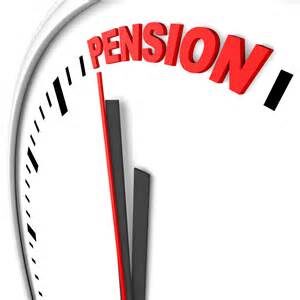Albert Einstein once stated income tax is the hardest thing in the world to understand.. he was wrong. As Rudyard Kipling stated words are, of course, the most powerful drug used by mankind. In this case, the word pension therefore must be the sleeping pill of the English language ! Yes the words glaze, boring and apathetic all come to mind when this most important aspect of our financial life is mentioned. John Lowe of MoneyDoctors.ie demystifies and simplifies the jargon.
The Institutions for Occupational Retirement Provision ( IORP ) was formed in 2016 and set out to improve the governance, risk management and transparency of pension schemes in Ireland. It set standards for the management and supervision of these pension schemes.
With IORP 2 new reforms were announced under an EU directive whereby inter alia more than 9,000 employer-sponsored pension schemes will be legally required to either substantially bolster their governance at additional cost to themselves OR migrate the schemes to Master Trusts before the end of 2022.
A Master Trust is a defined contribution (DC) pension scheme set up under trust for multiple employers. Economies of scale is one of the benefits along with low charges, online tools, apps, newsletters, a wide range of funds including ESG considerations ( Environmental, Social and Governance ) guidance and access to retirement options.
Currently there are only 7 Master Trusts in Ireland with c. € 1.5billion to € 2billion assets under management.
So what does this mean ? With Master Trusts, it is being proposed to use differential price for current and ex-employers meaning for thousands of ex-employees who left their company in the last 30 years, a different price structure on the cost of maintaining their pension with their former company could now be introduced. It will be more costly for ex-staff !
Those former employees will be advised on the transfer but will not be given any choice when it comes to structure, fees, investment direction or support services.
These ex-employees DO have options however…
- A transfer to a Personal Retirement Bond ( or Buy Out Bond )
- Gives you full control of the investment decisions – where you wish to invest the funds – and knowledge of all costs
- You are fully in control and if you choose to wait til normal retirement age (NRA) you will not have to find a trustee of your former employer to sign off on your pension when you want to draw it down.
- You can interestingly also commute this pension at age 50 ( not the NRA of your former employment generally age 65 ) i.e. take 25% tax free lump sum and the balance invested into an Approved Retirement Fund (ARF) where when you reach age 60, you MUST take out 4% monthly or annually ( called imputed distributions and taxable ) and on reaching 71, it becomes 5%.
While this may sound like gobbledegook to the average citizen, it is hugely important to understand your pension as by the time YOU retire, the State Pension may not be there.
So take advice and please address your pension planning whether you are starting out, in midlife and need a review, or you wish to look at your retirement options independently.

